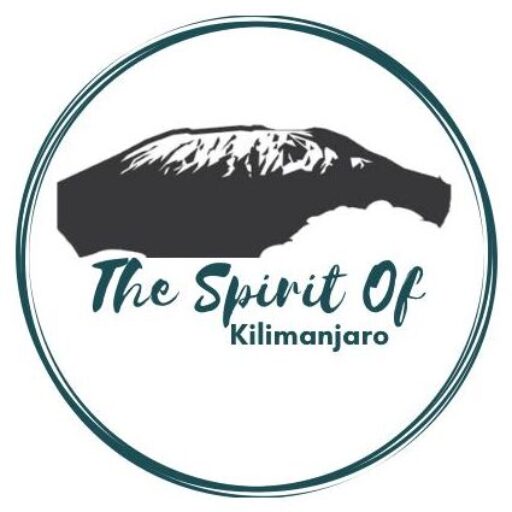Climbing Kilimanjaro as a Solo Traveler: What You Need to Know
Climbing Kilimanjaro as a Solo Traveler: Climbing Mount Kilimanjaro as a solo traveller can be one of the most enriching and adventurous experiences of your life. Standing at 5,895 metres, Kilimanjaro is the highest peak in Africa and an iconic trekking destination. While many opt for group adventures, taking on this challenge solo offers unique benefits, personal growth, and unforgettable memories. Here’s a guide to help you prepare and make the most of your solo Kilimanjaro trek.
The Benefits of Solo Travel on Kilimanjaro
1. Personal Freedom
Solo travelers have the freedom to select routes, set their own pace, and tailor the experience to their preferences. Without needing to align with a group, you can focus entirely on your personal journey.
2. Self-Discovery
Climbing Kilimanjaro alone provides an opportunity for deep introspection. The physical and mental challenges often lead to personal growth, resilience, and a sense of accomplishment.
3. Unique Connections
While climbing solo, you’ll likely join a group of other climbers or connect with your guide and porters. These interactions often foster meaningful relationships and a sense of camaraderie.
4. Flexible Planning
As a solo traveler, you can plan your trek around your schedule. Whether you’re looking for a specific route, duration, or time of year, the decision is entirely yours.

What to Expect as a Solo Traveler
1. Guides and Support Crew
Trekking Kilimanjaro requires booking with a licensed tour operator, and every climber is supported by a team of guides, porters, and cooks. As a solo traveler, this team becomes your support system, ensuring your safety and comfort throughout the climb.
2. Safety
Safety is a top priority on Kilimanjaro. Even as a solo traveler, you’re never truly alone. Your guides monitor your health, provide guidance, and handle emergencies if they arise.
3. Costs
Solo travel can be more expensive compared to joining a group trek. Without the shared costs of transportation and logistics, solo climbers often pay a higher rate. However, the personalised experience is well worth the extra expense.
Preparing for a Solo Kilimanjaro Climb
1. Choose a Reputable Tour Operator
Select a company known for safety, experienced guides, and strong client reviews. Research their experience with solo travelers and confirm that they provide personalised attention.
2. Train Physically and Mentally
Climbing Kilimanjaro is demanding. Prepare with regular endurance, strength, and cardio exercises. Simulate carrying a backpack and trekking on uneven terrain. Mental preparation is equally crucial; a solo climb requires resilience and determination.
3. Pack Smartly
Your packing list is critical for success. Essential items include:
- Sturdy hiking boots
- Layered clothing for varying temperatures
- A sleeping bag rated for cold weather
- Trekking poles
- A hydration system and reusable water bottles
- Snacks and personal hygiene items
Packing light yet adequately ensures comfort while reducing the burden on porters.
4. Know Your Route Options
Each Kilimanjaro route offers unique challenges and experiences. Longer routes like Lemosho or Northern Circuit provide better acclimatisation opportunities, ideal for solo climbers aiming for a higher success rate.
Solo Travel Safety Tips
1. Stay in Touch
Let someone back home know your itinerary and expected return date. Most operators provide updates from the mountain through satellite communication or other means.
2. Listen to Your Guides
Your guides are experts in navigating Kilimanjaro and managing altitude sickness. Always heed their advice on pacing, hydration, and safety.
3. Monitor Your Health
Altitude sickness is a serious concern. Be honest about any symptoms you experience, such as headaches, dizziness, or nausea. Early intervention is key to staying safe.
4. Stay Hydrated
Drink plenty of water throughout your trek. Dehydration exacerbates altitude sickness and can hinder your performance.
5. Be Financially Prepared
Carry some cash in US dollars for tipping and any last-minute purchases. Tipping your guide and crew is customary and shows appreciation for their hard work.
Best Time to Climb Kilimanjaro as a Solo Traveler
The best times to climb Kilimanjaro are during its dry seasons:
- January to mid-March: Clear skies, mild weather, and fewer crowds.
- June to October: Peak season with optimal conditions but more trekkers on the mountain.
Solo travelers often prefer the quieter months, such as November or early December, for a more serene experience.
Overcoming Challenges as a Solo Climber
1. Loneliness
While the solitude of solo travel can be rewarding, it’s natural to feel lonely at times. Engage with your guide team, porters, and other trekkers to combat isolation.
2. Motivation
Without a group to encourage you, staying motivated can be tough. Set small goals, focus on the breathtaking scenery, and remind yourself of why you chose this adventure.
3. Costs
While solo treks can be pricier, look for operators offering discounts or deals for single climbers. Alternatively, join an open group trek while maintaining your personal goals.
Is Climbing Kilimanjaro Solo Right for You?
Solo travel isn’t for everyone, but for adventurers seeking personal growth and a tailored experience, it’s an incredible option. Kilimanjaro challenges climbers physically and mentally, and tackling it alone can lead to profound self-discovery and achievement.
Final Thoughts
Climbing Mount Kilimanjaro as a solo traveler is an unforgettable journey that combines challenge, beauty, and introspection. You can safely and successfully reach the summit with the right preparation, a reputable tour operator, and a positive mindset. Embrace the adventure, trust your team, and savour every moment of this once-in-a-lifetime experience.
Are you ready to take on the Roof of Africa alone? The summit awaits! Climbing Kilimanjaro as a Solo Traveler
Contact Us
Get a Newsletter
* Join the newsletter to receive our best monthly deals
- CLIMB KILIMANJARO
- KILIMANJARO CLIMBING GUIDE
- MOUNT MERU CLIMB
- ARUSHA
- MOSHI
Enquire Today
Start Planning Your Tanzania Holiday
Please fill in all fields – an email will be sent with complete journey details.
